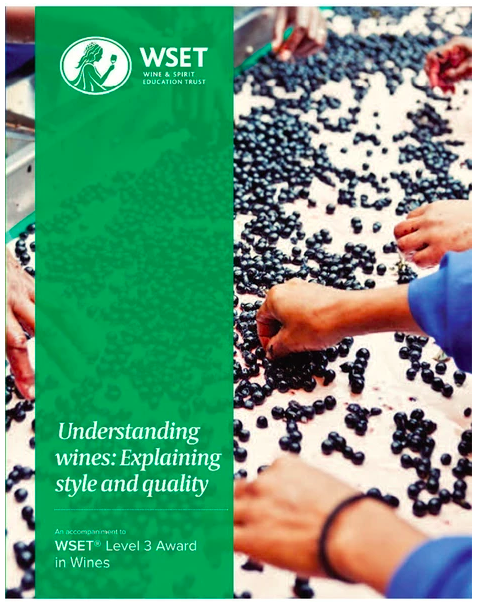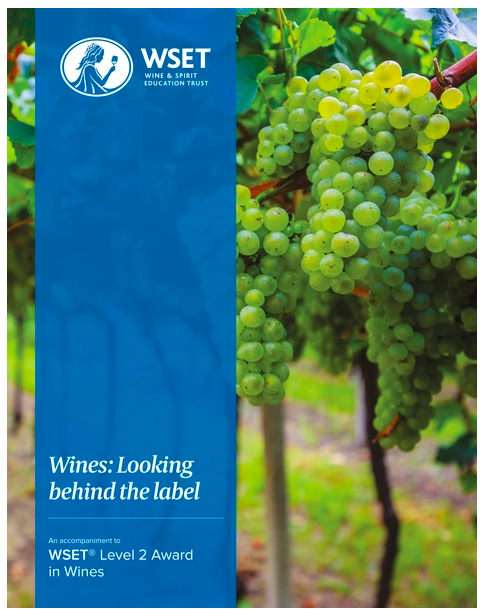10 THINGS TO KNOW ABOUT STUDYING WSET LEVEL 3
Have you been considering taking THE WSET Level 3 wine course?
Here are some lessons learned along the way through Level 3 that I hope you’ll find useful for ensuring you have a great experience!
A high level overview of what you’ll be learning through WSET Level 3:
WSET’s advanced wine tasting technique, called the ‘SAT’ (Systematic Approach to Tasting)
Pairing wine with food
Storing wine, & serving wine
Viticulture and winemaking (how vines are grown, and how wine is made)
All about the wines and regions of: France (Bordeaux, Dordogne/SW France, Burgundy, Beaujolais, Alsace, Loire, Rhône, & Southern France)
Germany
Austria
Tokaj
Greece
Italy (Northern, Central, & Southern)
Spain
Portugal
North America (USA, Canada)
South America (Chile, Argentina)
South Africa
Australia
New Zealand
Sparkling wines (Champagne, Cava, Prosecco)
Fortified wines (Sherry, Port, fortified Muscats)
Your studies will be based on the WSET Level 3 textbook, called Understanding Wines: Explaining Style and Quality. Although you’re free to read more widely about the topics covered, know that you can absolutely achieve a top tier result solely by studying the textbook.
The WSET Level 3 textbook on wines, much longer than Level 2 but with plenty of pictures!
In the final exam, you’ll complete three components: 50 multiple-choice questions, a section of short answer responses, and a tasting of two wines. You need to achieve 55% on all three elements of the exam to pass.
1) OPTIONS FOR Taking the course
How do you learn best? You can take the course online or in person. Here are some considerations: Online gives you plenty of flexibility to study on your own schedule, but you’ll need to take the lead on buying and tasting wines. It’s also helpful to learn the Level 3 tasting skills with an instructor present, to get instant feedback on your technique (I’ve heard from students that take the online option that the tasting portion was a challenge). Once you’ve got the basics, you can do more self-study and practice with confidence.
In person class options include either a quick condensed schedule over just a few days, or spread out over several months. If your schedule allows for it, I strongly recommend the longer option, as it gives you an opportunity to digest the materials at a more reasonable pace.
2) You can challenge Level 2 and go straight to Level 3
You don’t have to take WSET Levels 1 and 2 to take Level 3. You can proceed from Level 2 if you’ve already taken it, but even if you’ve never taken a WSET course before, you can challenge entrance into Level 3 with an online test. You should have a good basic understanding of wine to attempt this. Not sure? Read the textbook first to decide if you’re at the right level.
To take the challenge test, reach out to WSET, and they’ll send you a link to take the timed online multiple choice exam. The questions all come directly from the Level 2 textbook, called Wines: Looking Behind the Label. You’ll need to have read it at least twice, and flag key sections to be ready for the test.
The highly enjoyable, and relatively brief, WSET Level 2 textbook on wine
3) Choose your provider after research
There’s a lot of variance by course provider. In addition to the cost of the course ranging slightly, some schools will spend more on the wine samples that you’ll be tasting (ie: you’ll get to taste more and better quality wines), there may be more or less total classroom time, and some have higher passing rates. Do your research by comparing the WSET providers in your area, and asking for a sample list of wines; find out who your instructor would be. An engaged instructor makes the difference between a good and an awesome experience!
4) PRE-Read the WSET Level 2 textbook
If you have the Level 2 textbook, read it again before your class begins. It will prime your memory for the new level of detail you’ll be encountering.
The jump between Level 2 and 3 is much bigger than that between Level 1 and 2. Best arrived prepared!
5) Go to class having ALREADY done the readings
I know how busy life gets. You have the best of intentions but then class day rolls around and you haven’t read the text yet. Sincerely, you’ll get way more out of the brief lecture time you receive on each topic if you can review the reading before class.
Here’s the ideal scenario:
You know that this week you’ll be reviewing Burgundy and Beaujolais, so you take a look at how many pages you need to cover. You spend 15 minutes each day reading the material in the days leading up to class. Class begins, and you’re on familiar ground, so when the instructor calls on you about Beaujolais Crus: you’ve got it ;)
By reading ahead, you’re essentially converting your classroom time from an introduction session into a review session. Just think of it this way, you’re preparing for the exam before you even get the lecture!
6) Taking notes & making drawings
After your class, go back to your reading and make your notes. It will be the third time you’ll be reviewing the topics and will be starting to make sense. Now, it’s time to memorize :)
The best way to memorize is to handle the information in a variety of forms. You’ve done reading, there’s also hand written note taking, which is great for retention. Finally, drawing closed-book mind maps for each region is a huge help for a couple reasons: it will show you immediately where you need to do more review, and also, studies have shown that incorporating drawing (they can be scribbles, doodles, at whatever you like) is proven to boost your memory of the material.
7) Do you need a study group?
Need? Not really. Is it a good idea? Yes, usually.
A study group is a great way to connect with fellow wine lovers who are as serious about their studies as you are. For tasting practice, they not only help split up the cost of wines, but are a great sounding board for how your notes are shaping up. You can learn a lot by listening to others’ tasting notes and conclusions.
Try to establish a regular day of the week and time to meet up, and rotate responsibilities. If there’s someone who’s happy to be the main organizer that’s great, but if not, best to share the workload.
8) Your classmates may seem more confident than you feel
Whether you’re in class, or after the exam, it’s inevitable that you’ll have a moment of two of self doubt or overwhelm. You’re learning a huge amount about wine. Don’t forget to have confidence in yourself, even if other students seem uber-uber-confident (this goes doubly for when you’re all gathered around after the exam to break down the questions)! All you have to do is show up knowing you’ve done your best to prepare.
9) Enjoy YOUR EXPERIENCE!
Remember: it may get overwhelming along the way, but always remember how brilliant it is that you’re learning about wine.
10) It will change the way you (and your friends & family) experience wine
When you look back at your time taking WSET Level 3, it’s going to blow your mind how much you’ve learned along the way. Concepts and wines that were so complicated (Prädikat system anyone?), are now placed firmly in your grasp.
Going out for dinner, you’ll open the wine list with a whole new appreciation and fluency. You’ll be smarter at the wine shop too, bringing home bottles that represent value for money or interesting experiences. You may even start thinking about the Diploma…
Thanks for reading!
If you have any questions, tips, or words of wisdom on WSET Level 3, please leave a comment below :)
Cheers,
Rachel
PS: Wanting some help with your studies? Check out our Level 3 Prep Course



